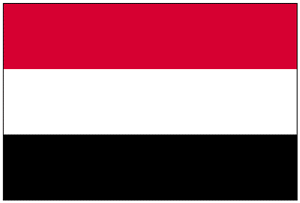 Yemen
Yemen
 Yemen
YemenThe outcome of the "English for Yemen" had proven to be unsuccessful. Students graduated from high school with very weak English skills, which prevented them from being able to manipulate the language. Most of them couldn't even utter a single correct sentence in English. This problem became a great obstacle in their universitystudies, especially for those who majored in fields such as medicine, engineering, and commerce, which consider English as an indispensable part of the studies. Teachers came to the realization that during the six years when students were exposed to the language, they had been teaching them all about the language, not the language itself. This defect had been caused by the total negligence of spoken English and called for a new and more effective curriculum taught by using new teaching strategies and techniques.
In the mid-nineties the Ministry of Education introduced a new syllabus called "Crescent". The text is interesting, suitable, useful, attractive and better than the old text in all aspects. It is British and the supervisor is Oxford University. It encourages interaction between the teacher and the students, while teaching with the old text the students were a mere audience. It provides the students with a lot of communicative activities, focusing mainly on the spoken aspect of the language. There is no emphasis on translation or literature as was done in the past. The mother tongue is neither to be used by the teacher nor the students. Grammar is taught through the language, not like before when the language was taughtthrough grammar. The product of the new curricula and the new teachingmethods have not shown up till now but hopefully will be up to the standards.
The only problem with the new curriculum is that it requires an ideal class and ideal period of time. This contrasts the situation at our schools especially in large cities where we find small classrooms with a large number of students and a short class period. In this case, teachers will not be able to achieve all the aims of the lesson and they may retire to translation from English into Arabic and vice versa.
In private schools and institutes the matter is different. Many kinds of British and American series are used and the students are usually taught by native speakers in order for the mother tongue not to be used in the classroom and also so the learners can catch the accent of the native speakers. In public schools teachers are mainly Yemenis and there are some very rare teachers from the neighboring Arabic countries.
As you can see teaching English in Yemen was grammatically oriented like many of the countries on this web but now spoken English has become more significant due to the growing need for communication as Yemen is opening itself more to the world. [Naila Al-Romaim]

You might get more information on Yemen from the following site: The British Council
The British Council
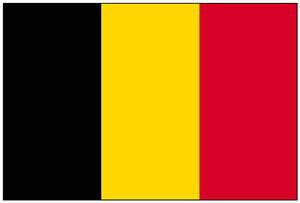 Belgium
BelgiumThe practice of teaching English varies widely in Belgium, according to in which school system it is taught. The majority of the schools are catholic, supervised and funded by the state. The state also has its own network of completely state-run schools. These two networks are also divided into two by the linguistic divide in Belgium, where the French-speaking and the Dutch-speaking people have different government ministries for cultural matters such as education. In Brussels, where I teach, the situation gets a bit confusing because of the city's bilingual status; you have the two official and two catholic networks all operating independently from each other. Nevertheless, there tends to be a consensus here as far as the teaching of English is concerned.
English is not yet a subject here that is tested in entrance exams at university, so we try to do it the proper way. Children here learn English from the media because the language is so similar to Dutch. Government and teacher training had been stressing the importance of competence over the grammar-translation method and the extensive literary analysis of the classics with lots of biographical "subject matter" to be learned by heart. True, there is still an older generation of teachers dominating in the final years that does a lot of literary analysis, but they are being replaced by teachers who want to employ the new media and ICT. Government places a lot of importance on the ability to communicate adequately with a view to later professional life. The funding is adequate; we get the latest equipment and there are between 15 and 25 pupils in each class. [Maria Boodschap: Brussels]

You might get more information on Belgium from the following sites:
 The Information Database on Education Systems in Europe - Belgium - French Community
The Information Database on Education Systems in Europe - Belgium - French Community The Information Database on Education Systems in Europe - Belgium - German Community
The Information Database on Education Systems in Europe - Belgium - German Community
 The Information Database on Education Systems in Europe - Belgium - Flemish Community
The Information Database on Education Systems in Europe - Belgium - Flemish Community
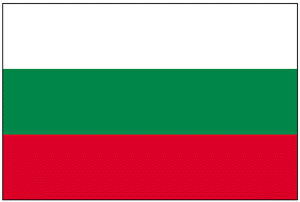 Bulgaria
BulgariaSo far FLT started in the first year of junior high, i.e. in the 5th grade in Bulgaria -age 12- with 4 classes a week. The situation in junior high is almost tragic. There aren't enough qualified teachers, the textbooks are not good and there are almost no extra study materials. Computers are not available. Teachers are expected to teach with a piece of chalk only. For years we have been using an English textbook called 'Discoveries,' but the contract we had with the publisher expired and now the major textbook is a Bulgarian one, which is very, very difficult for 5th graders. No teacher can cover the material for the first year, and then they have to jump over to continue with the next textbook.
The interesting thing about our educational system is that we have so called Language High Schools. As far as I know, this type of schools is unique for some of the former Eastern European Socialist countries, but they still successfully exist. Having passed an exam in Bulgarian literature and mathematics, students are then given a test checking their knowledge in all major subjects taught in the 7th grade on top of the old exams. (7th grade is the last but one year of junior high) They have 18-22 English classes per week in the mornings and 20 more in the afternoons. There are A and B teachers in the mornings and a supervisor in the afternoons. The A teacher is the primary one who has to cover the material; the B teacher has to be a native speaker, if available, and is responsible for the conversational lessons. The supervisor's obligations are to practise the material from the morning, do dictations and grammar exercises approved by the A teacher.
In the first year the students learn about 5-6,000 words and all the basic grammar. They have 4-5 classes of English and just a couple more for mainly Bulgarian, mathematics, PE, and arts. At the end of this first year they start learning some basic terms in sciences and later they learn some or all of the subjects in English or in the respective languages. There are mainly English language schools but we also have German, French, Spanish and Italian schools. At the end of the 5-year course the students' level of English is enough to pass successfully Cambridge First Certificate, Cambridge Advanced, TOEFL and SAT. The high school diplomas of the French and the German schools are accepted in France and Germany and our students can go and study there without taking an exam. In the past the number of these schools was very limited. One in the major cities. Now each town has several of these and almost all high schools have one or two classes that follow the curricula of the language schools.
For years the English language schools ranked first among the language schools in general. The students with the highest marks from the entrance exams used to enter the English language schools. However, in the last few years a new tendency is emerging. The German and French are gaining greater popularity because both children and parents come to realize that if the child starts learning English at the age of 8 or 10 and then is ambitious enough to continue to study it as a second language at school and outside of it, he/she will come out of their secondary school fluent in two languages. [Sylvia Kouneva]

You might get more information on Bulgaria from the following site:
 Ministry of Education and Science
Ministry of Education and Science
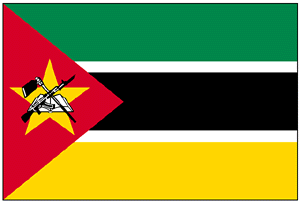 Mozambique
MozambiqueEnglish in Mozambique is taught as a foreign language, but we have a lot of problems: each stream or class has got more than 60 students and we do not have books for teachers and for students. Our students are afraid to try to speak in English and all the time they speak in Portuguese or in their local languages when discussing something in pairs or in groups. We teach English from standard 8 to 12. Each class has got 135 minutes of English a week, which is not enough. We also teach English in Portuguese, though I don't know who brought this bad technique! In fact, even here in Mozambique we spend a lot of time explaining about how to translate sentences and grammar. For example, if you say, "Yuki is a high school English teacher in Japan.", some students will put their hands up to ask the meaning of "Yuki or John".
In our country there is no English test to enter university because the language of instruction is Portuguese, but if you would like to be a teacher of English you have to take an English entrance exam, or if you would like to study abroad you have to pass the TOEFL at the British Council. The British Council is supporting the Ministry of Education in English Teachers Training Courses in order to change this actual picture. [Filipe Pedro]

You might get more information on Mozambique from the following site: Mozambique - Education
Mozambique - Education
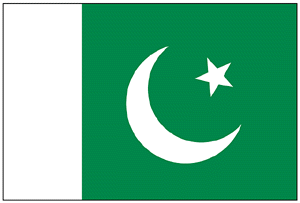 Pakistan
PakistanThere are varied standards of even private schools. Some can compete with Oxford University, while the standards of others are very low, especially in rural areas where there are schools without teachers, and students normally sit on earth and for some time in the shade of trees. In good schools the number is kept up to 45, but in others it can be more. In high schools, colleges and universities English is taught as a compulsory language and most of the students are very good in writing and reading but they have problems with speaking. The students in private schools are even better in speaking. Most of the tests for job or college entrance are taken in English and in offices English is officially used. [Kiramat Shah]
In government schools, Urdu is the medium of instruction in primary school till the age of ten. English is introduced in Class 6, when the preparatory school starts. It is treated as a language only and is not a medium of instruction till the children get to college after doing their Matriculation at the age of fifteen or sixteen. During their school days, they are also supposed to learn Arabic, which is the language in which our Holy Book, the Quran is written. In fact our students are exposed to four languages by the time they get to college. The first one is the mother tongue (depending on the part of Pakistan they belong to), second is Urdu, then English and Arabic. In college, the medium of instruction becomes bi-lingual. English is compulsory for the teaching of science subjects, but students have a choice of language in the humanities group. There is heavy reliance on translation method for the teaching of English in schools but the situation changes in colleges where studies become more literature based. In semi-government institutions which are run mostly by armed forces of Pakistan, the medium of instruction is English right from the first class but still the languages remain the same. The teachers in these institutions are better trained and have more resources than the teachers in government schools who literally have nothing else but the chalk and the black board.
There are two types of private schools in Pakistan. The first one that I like to call is "street schools". These are everywhere. You turn round a corner and you will find a school with a fancy name. These are mere business ventures with little interest in education. All of them have got a hundred or fifty more students. The other type is run by some major organizations with branches all over Pakistan. These are doing a real good job. Schools like Beacon House School System, Lahore Grammar School, Karachi Grammar School, The City School System are some of the major names. These systems get the latest training for their teachers and apply the latest methods in teaching English. But these schools are only limited to cities. However, a system named "The Educators", which is being introduced, is taking over the government institutions. I hope the situation is going to improve in these institutions as well.
Now about the school where I teach; it is called the Ibne Sina College, named after an Arab scientist known to the world as Avicenna. English is our medium of instruction but we lay equal emphasis on Urdu language, which is why our students know both the languages better than students of other private institutions. We are known for showing the best Matriculation results in the Lahore Board of Education. [Irshad Barkat]

You might get more information on Pakistan from the following sites: Educational Research Institute
Educational Research Institute Karachi Grammar School
Karachi Grammar School
 Sudan
Sudan
You might get more information on Sudan from the following site: Country Education Profiles
Country Education Profiles
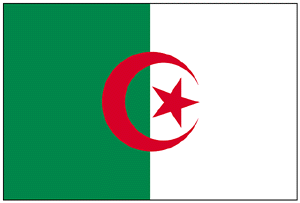 Algeria
AlgeriaAfter 1990s, a new revolution came to the surface. Our government, or the Algerian authorities started new relations with USA and they have given a little importance to English which is now taught at primary schools. Maybe in the coming two years students are going to study English as they now study French and they could choose their high studies in the field of studying English from the secondary school. Our pupils were studying English from the 8th class to the 3rd class of the secondary school, but now they start learning English from the 4th class of the primary school.
Going back to the actual situation, you would know that is catastrophic because of many factors. Our pupils are not interested in learning English and even French because they focus their studies on maths, physics, sciences of life and nature and other fields but not languages. In addition to that, the teachers are not at all interested in the program presented to them and they find it no sense and do without practical activities, which results in a very low level of our future university students. [Melakhessou Khaled]

You might get more information on Algeria from the following site:
 Algeria government - Education
Algeria government - Education
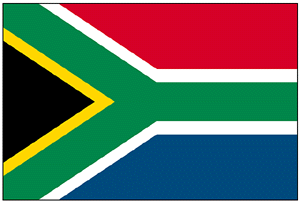 South Africa
South AfricaAt the same time, the learners from more advantaged communities who manage to study in a quality learning institution, choose to take English as a main language, even if it may be their second language. They choose to do this for numerous reasons: most of the quality tertiary institutions use English as their medium of instruction so they want to learn English in order to equip themselves to achieve their tertiary goals; many quality schools offer English only as a main language and not as a second language. [Brenda Davey: Dundee, Kwa-Zulu Natal]

You might get more information on South Africa from the following sites:
 The Teacher
The Teacher
 Willowridge High School
Willowridge High School
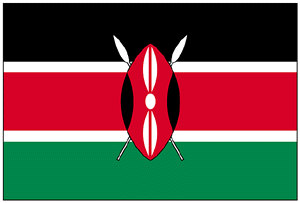 Kenya
KenyaIn primary schools, all students are taught all the lessons in English as it's the basic language of instruction. English is taught as a subject everyday for 1hr and 30 minutes in most schools depending on the regulation. By standard six when the students are about ten years of age, they normally have developed excellent vocabulary skills and can write long essays with full expressions and idioms using correct tenses. The final primary school exams are done in class eight, and by this age the students know comprehension skills.
In most secondary schools English is the only allowed medium of communication, and with this in mind the students always strive to perfect on their language skills through inter school quizzes, drama competition, writing of year books and school journals. English is taught for 1hr and 30 minutes everyday just as in primary schools and acts like the first language. Although Swahili is the national language, most students are very poor in it and dwell more in English. [Dannie Gor]

You might get more information on Kenya from the following site:
 Education in Kenya
Education in Kenya
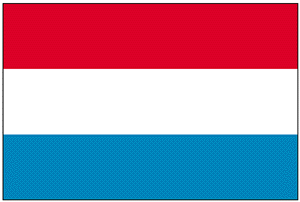 Netherlands
Netherlands

You might get more information on Netherlands from the following sites:
 The Information Database on Education Systems in Europe - Netherlands
The Information Database on Education Systems in Europe - Netherlands
 Ministry of Education, Culture and Science
Ministry of Education, Culture and Science
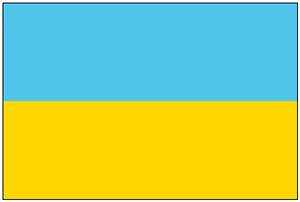 Ukraine
Ukraine

You might get more information on Ukraine from the following sites:
 Educational System & Educational Institutions of Ukraine
Educational System & Educational Institutions of Ukraine
 The System of Education in Ukraine
The System of Education in Ukraine
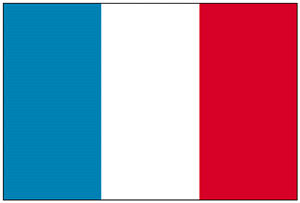 France
FranceOn the whole, foreign language learning in France is given very little importance in the way of funding (insufficient amount of teachers and equipment) and a coherent pedagogic policy, although the media propaganda put out by the Education Ministry would have you believe the contrary. And this is only the tip of the iceberg. I haven't even touched on the content of textbooks, the time of day when English classes are taught, the percentage importance given to English exam results in the overall calculation of high school graduation criteria...and more.
Although I sometimes think that we in France are especially disadvantaged when it comes to foreign-language teaching and learning, all in all I suspect that this policy is the general rule in most parts of the Western world. [Mitch Mruk: Autun]
The last ministers have encouraged the learning of English in the primary schools and the first years were very hectic. We are approaching a more acceptable situation and in the coming years, hopefully, most French pupils will have some knowledge at the age of 11. As usual in France things always take a lot of time!
In the "Colleges" where the kids are between 11 and 15, not all the kids start school at 8 in the morning: this is the case in the towns where the children don't have to get up very early to catch a school bus. In the country the lessons start at 9. Most days end at 5, but in some schools it can be 4 or 4:30 if they start at 8:30. There is traditionally no school on Wednesdays, but on Saturday mornings. However, there is a new policy inside an increasing number of secondary schools to have the Saturday lessons transferred to the Wednesday morning.
Teaching English in a French secondary school varies a lot if you are in town or in the country. The social and cultural levels are different and the means, too. In some schools you can have a native-speaking assistant but in the coutry you can't. Some [they are rare] have a language laboratory, a lot don't. Most classes have between 21 to 27 students. In the suburbs where the situation is sometimes catastrophic, they try to reduce the number of students to 20.
What one must understand is that during the last 2 decades there has been a national policy to open the secondary school to ALL: whatever their capacities and knowledge were. The result is a decreasing level of our teaching as we have to cope with all sorts of students with all sorts of problems and difficulties. The consequence of that situation in the "Colleges" is that the level in the "Lycees" (upper high schools) that teach to 16-18 year olds has gone down as well. Lack of means and motivation. In France teaching English, which is a subject most French pupils don't like, is not an easy matter. [Anne Pinel]

You might get more information on France from the following site:
 The Information Database on Education Systems in Europe - France
The Information Database on Education Systems in Europe - France
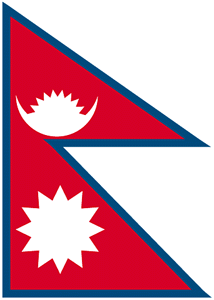 Nepal
NepalSecondary education is divided into three years' lower secondary and two years' upper secondary school. The lower secondary curriculum (grades 6, 7 and 8) and the secondary curriculum (grade 9 and 10) are constructed with core subjects and optional subjects. The five lower secondary core subjects are Nepali, English, math, science and social studies. The six secondary core subjects are Nepali, English, math, science, social studies, health, population and environment (HPE).
Recently the curriculum for secondary level English was changed. Now it is more communicative and child-centered. [Diwakar: Kathmandu]

You might get more information on Nepal from the following sites:
 Nepal - Education policies, curriculum design and implementation at the general secondary level
Nepal - Education policies, curriculum design and implementation at the general secondary level
 Education in Nepal
Education in Nepal
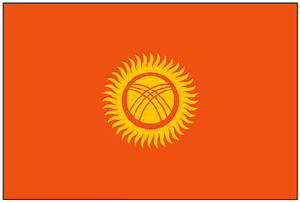 Kyrgyzstan
KyrgyzstanPupils are to learn alphabet first; how to pronounce and write it correctly. We try to speak more with native English speakers to know about features of dialect or differences in pronunciation as each English speaker in each country speaks differently. We pay more attention to pronunciation to distinguish the differences. We take a variety of English and dialects of the States. We also pay more attention to communicative skills.
As Kyrgyz language is similar in grammar and pronunciation it is easy to teach English for Kyrgyzs, whereas Russians face some more difficulties. As for grammar, we even learn by heart all rules of grammar in English. And we cannot do without culture and history. I guess we know more than native English speakers about their countries . [Agymalieva Aizada: Bishkek]

You might get more information on Kyrgyzstan from the following sites:
 Kyrgyzstan - The Education System
Kyrgyzstan - The Education System
 Aychurok Girls' High School
Aychurok Girls' High School
There are many programs on TV, the students listen to CD's and watch videos in English and their English is quite good in the larger towns. There is a strong English teen culture that is desired and imitated right down to the clothes. The discipline is quite strict in schools with corporal punishment still practiced and most students don't like school that much. They also have to learn Russian and many are taking up Japanese. Mongolians travel everywhere it seems to get jobs and come back knowing many languages. They always seem to come back. The salaries of teachers are so low that only the adventurous native English speaking foreigners go, religious organizations or the US Peace Corps. The university is promoting upgrading of teaching and holds workshops, has a newsletter and develops materials. They could use our support! [Sally Olsen]

You might get more information on Mongolia from the following site:
 Mongolia - Education
Mongolia - Education
In general, students in Laos want to learn English but a lot of schools in rural areas don't teach English because there are no teachers who can teach English. Thus students in cities can only learn it. English is popular among them. They are interested in it, but English is not a main subject at school and there is no entrance exam or leaving exam.
Most teachers teach English in Laos in a way that they just write on the board, and thus students just copy down what their teachers write. Working in groups is very difficult because there are 60-70 students in a classroom and there is no other material for teaching English besides textbooks. In Samnuae, students study English at private classes in the evening after school. [Malaithong Bounyaxay: Samnuae, Houaphan]

You might get more information on Laos from the following sites:
 World Encyclopaedia - Education since 1975
World Encyclopaedia - Education since 1975
 Vientiane International School
Vientiane International School
 Virtual tours of secondary schools in various countries
Virtual tours of secondary schools in various countries